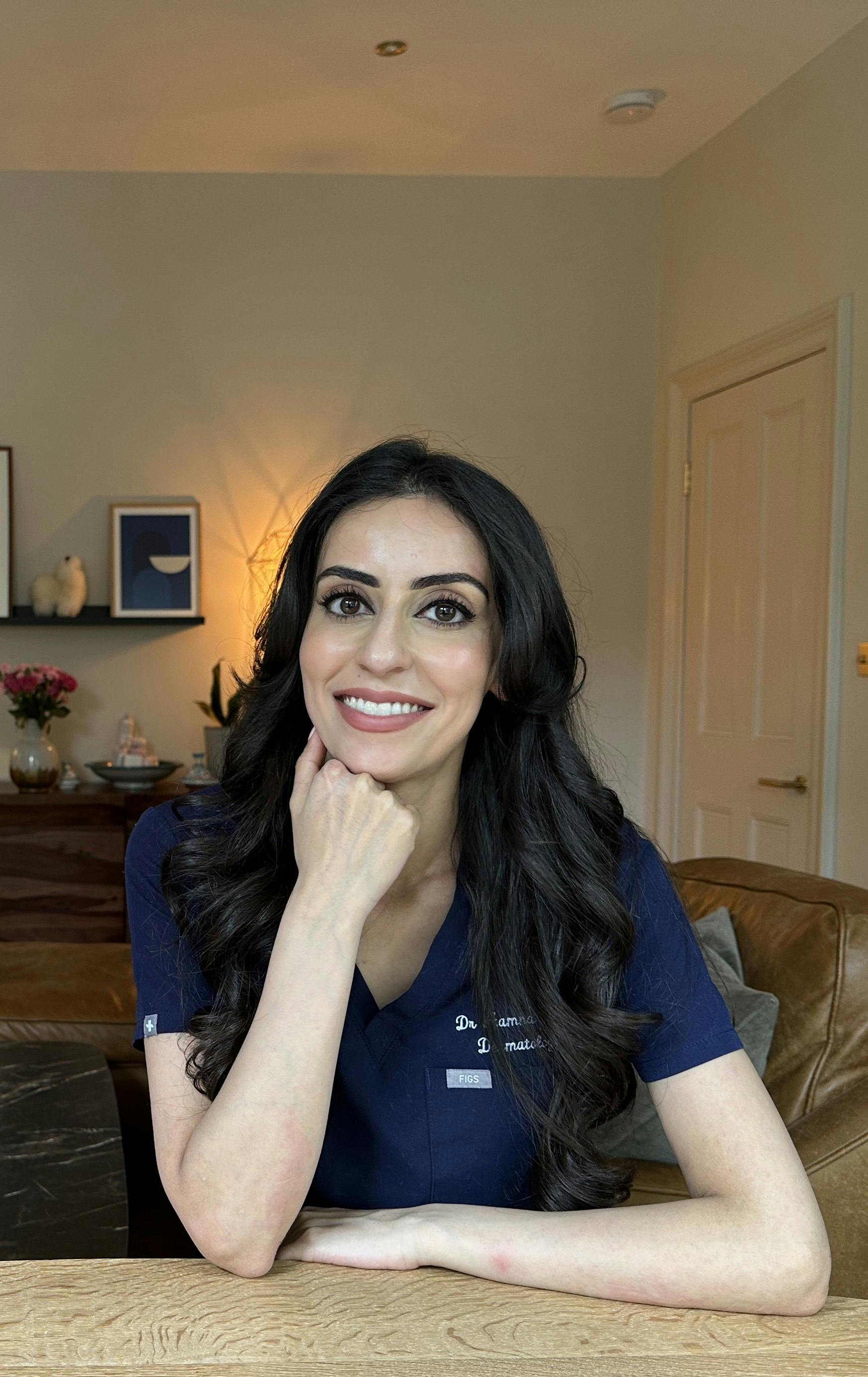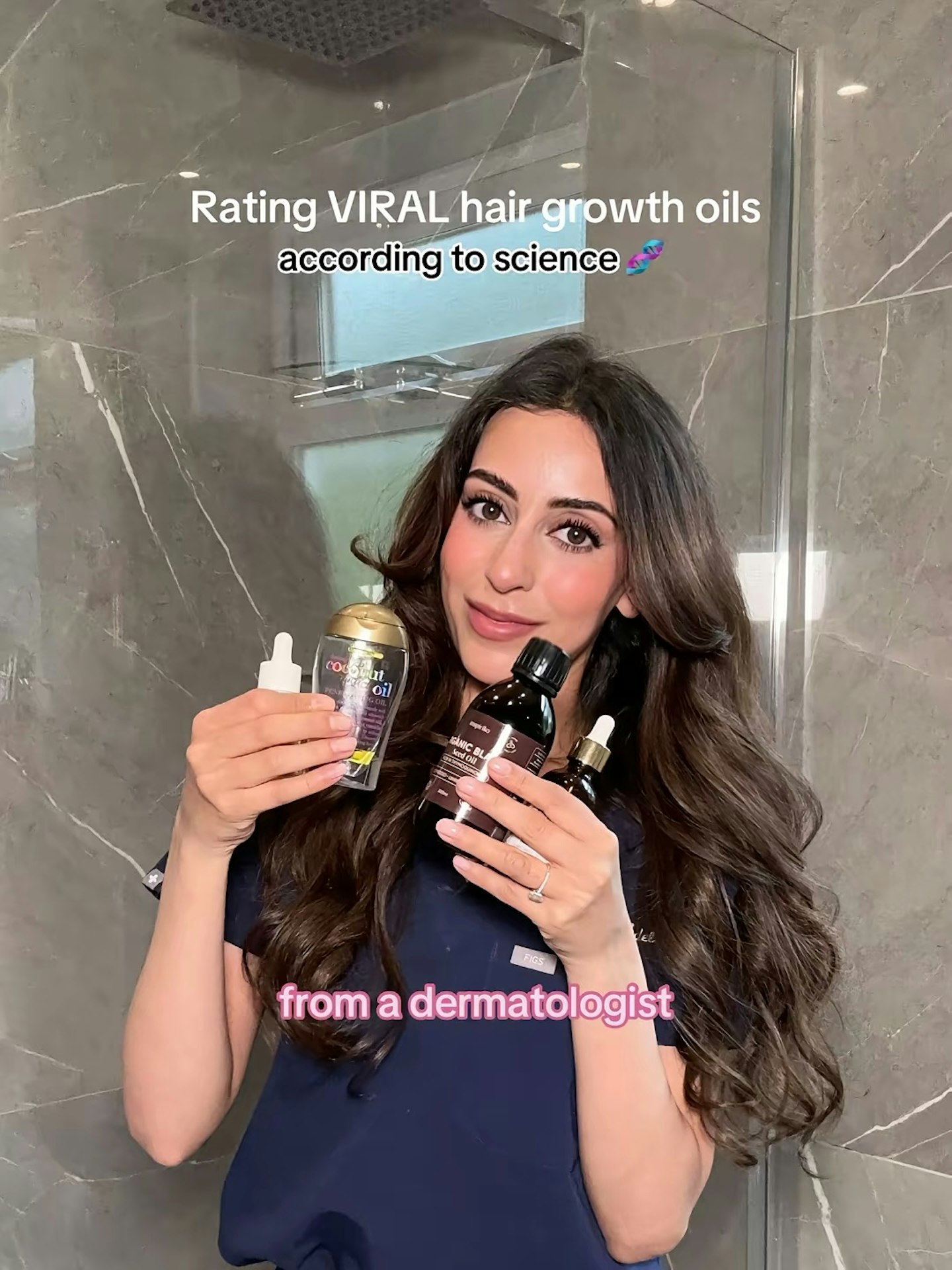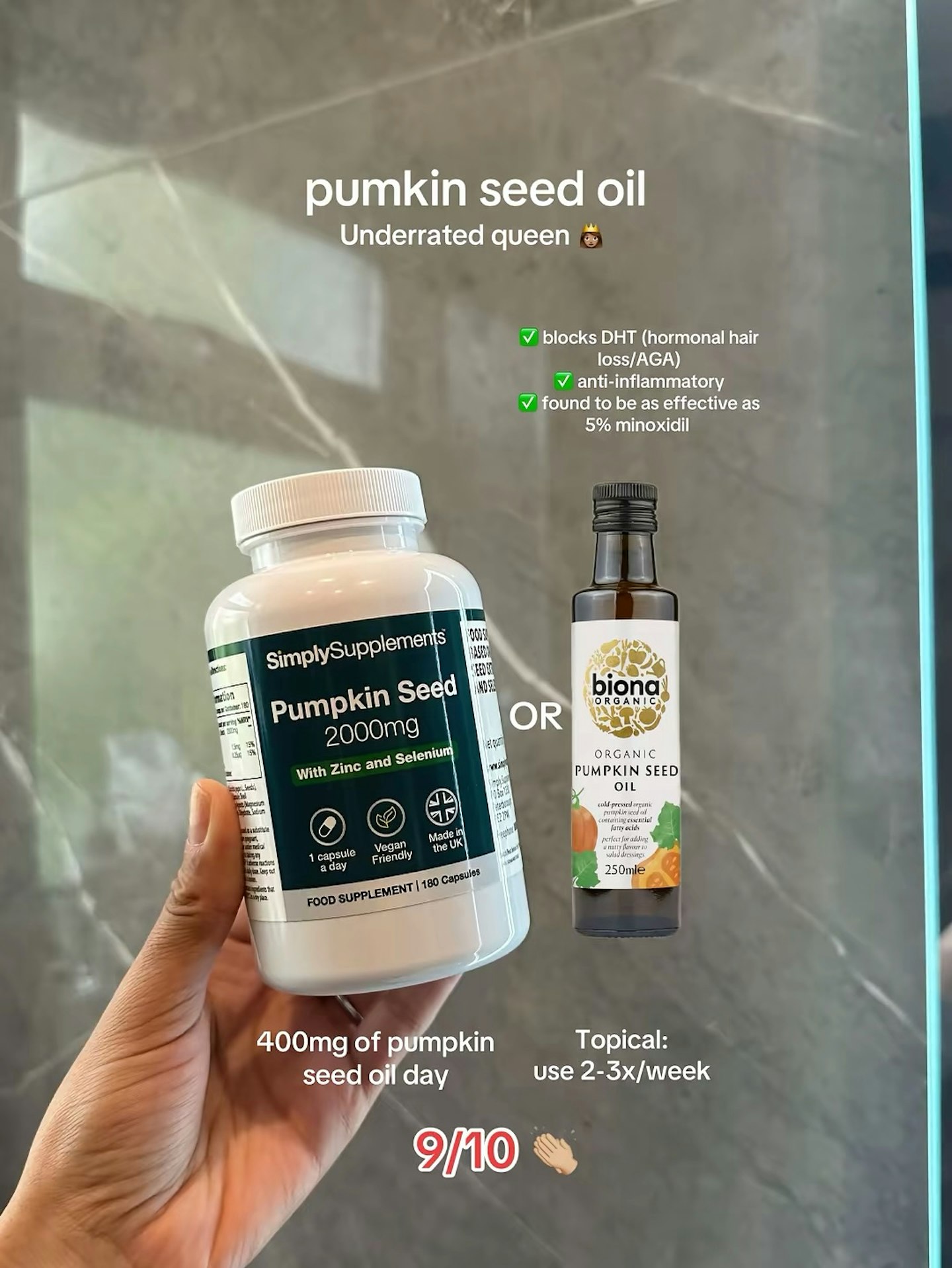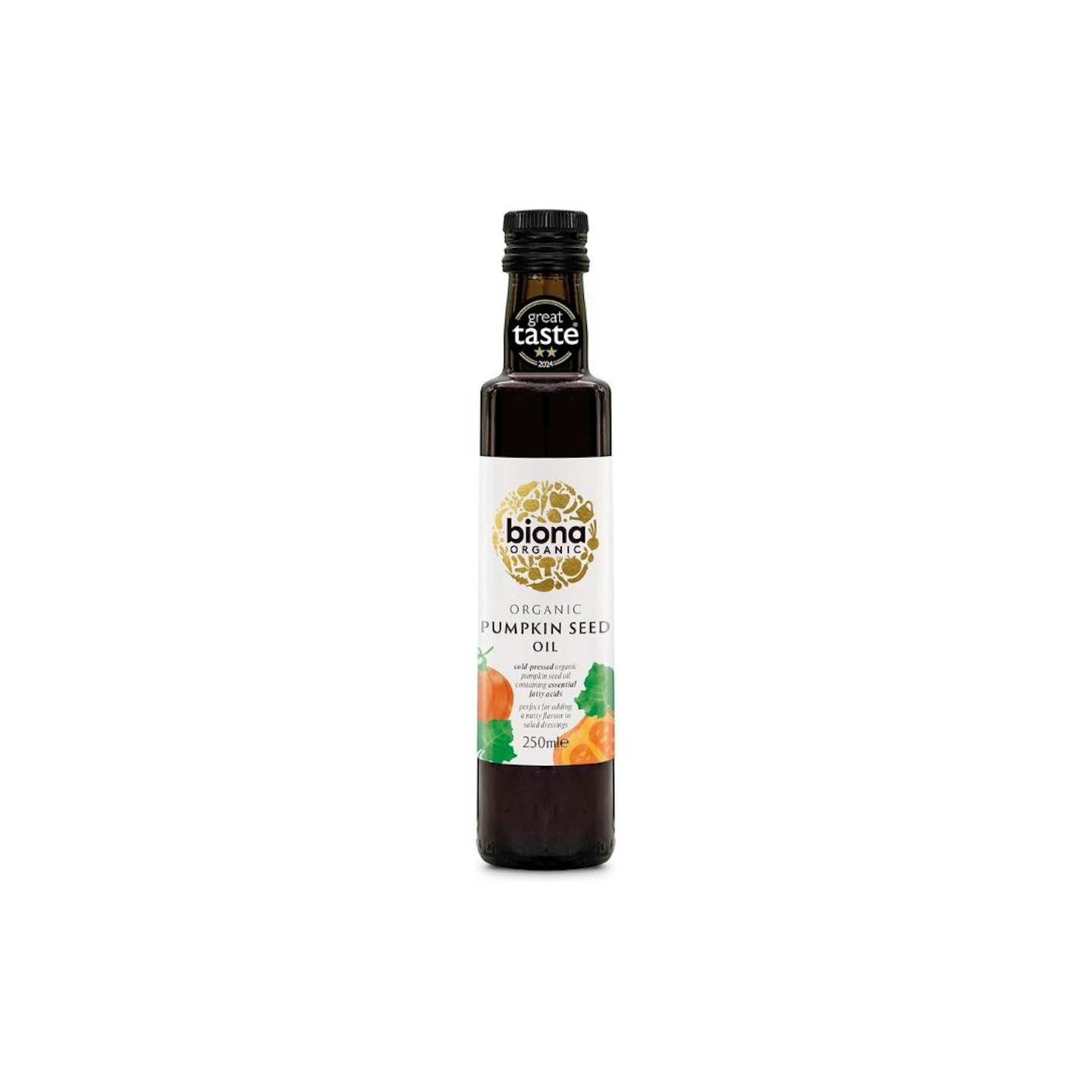
Medically Reviewed by: Dr. Aamna Adel
Hair, or the lack of, has been a hyperfixation of the beauty community of late. Whether we are trying to grow it, maintain it, or prevent it from falling, the health of our hair is as important as ever. Our collective concerns around the subject are being marked today with the start of Hair Loss Awareness Month, which extends throughout August and aims to shed light on hair loss, its causes, and the impact it has on the people it effects. While the concern is a common one, Thérapie Clinic reports approximately 6.5 million men and 8 million women across the UK are affected by it, there are thankfully a host of solutions ready to remedy our scalps and strands. Despite what you may think, these stretch beyond high-tech lasers and cosmetic injectables to include simple pantry staples like oils, too.
Speaking on the concern, hair loss specialist and Grazia Beauty Panel member, Dr Aamna Adel, has taken to Instagram to reveal the viral hair growth oils that are actually worth the fuss, according to science. Before you mention the likes of rosemary, batana and coconut oil, Dr Adel has news - they don't cut it. In fact she rates the former (and most hyped hair oil online) a four out of ten and urges her followers not to expect miracles when using it.

Does pumpkin seed oil help hair grow?
As for her most highly commended oil for hair growth? Pumpkin seed oil, which Dr Adel gives a nine out of ten star rating. Taken from the oil of pumpkin seeds, she explains, 'The oil is packed with antioxidants, essential fatty acids, vitamin E, zinc, and phytosterols. It's an anti-oxidant, anti-inflammatory and has DHT blocking properties, which is implicated in hormonal hair thinning AKA androgenetic alopecia (AGA).
Topically, fatty acids can help strengthen the scalp barrier, reduce inflammation and support an environment for better hair growth.'
While it has been used in traditional medicine for some time, recent studies showed that in men with AGA, it was comparable to 5% minoxidil (a popular topical medication used to treat hair loss) and helped increase hair density (increased number and thickness of hairs) in those who took 400mg a day. Dr Adel adds, 'There is evidence that both topical and oral pumpkin seed oil can help with hair growth, these are small scale studies however the evidence is promising and would be an option to explore for someone who doesn’t want to take minoxidil.'

How to take pumpkin seed oil
Having tried pumpkin seed oil both topically and orally, Dr Adel has noticed her scalp becoming less dry and irritated, and her hair feeling more dense overall. 'I think as part of an overall haircare routine and combining it with clinically proven ingredients like peptides and caffeine it can be beneficial. I wouldn’t expect miracles on its own.'
If you're keen to try it, there are a few things to note. If applying the oil topically, directly massage it into the scalp a few times a week, and if you opt to take it orally as a daily supplement, around 400mg per day can be beneficial for supporting hair growth. 'Both ways are effective, although oral might have slightly stronger evidence but it comes down to personal preference.'
Shop: The expert-approved pumpkin seed oil for hair

While this oil won the Great Taste Award 2024, it is cold pressed from organic pumpkin kernels and works wonders on your scalp as well as salads and soups. Dr Adel recommends using it topically two to three times a week to really gauge the results.
Dr Aamna Adel, hair loss specialist and Grazia Beauty Panel member, says: 'Ive tried it both topically and orally. I have noticed that my scalp is less dry and irritated and my hair overall feels denser. I think as part of an overall haircare routine and combining it with clinically proven ingredients like peptides, caffeine it can be beneficial. I wouldn’t expect miracles on it’s own.'
Pros
- Can be used topically and ingested through addition to meals
Cons
- Requires consistency for visible results
How to spot hair loss, according to an expert
Identifying hair loss and deciding when to speak to a professional about it is the first step to getting things back on track. Hairdresser and founder of The Six Hair & Beauty in Mayfair, Marcos Verissimo, explains, 'Start by paying attention to where you're seeing hair – if you're noticing strands on your pillow, in your car, on your clothes or table – places beyond your usual shower or brush – it could indicate something more than the natural cycle. Also, if you notice more shedding right after washing, or a lack of growth in your nails and general skin health – remember, it’s all connected. Hair is made from the same protein as your nails, so if one is struggling, the other likely is too.'
Another key sign is a shift in density, 'if your hair feels noticeably lighter or thinner, or your parting appears wider than usual. In these cases, I always advise monitoring things closely for around four to six months, especially if you've recently started any hair growth treatments or lifestyle changes. It’s important to give your body time to respond before drawing conclusions,' he adds. Plus, take note from your stylist, they are trained to spot the subtlest of changes, so if they flag it you know it is serious.
Main image: Instagram @dermatologist_adel
Sameeha Shaikh is Grazia's beauty writer, covering all categories to bring you insights on the latest trends, industry news and the products you need to know about, viral or not (most probably viral).

